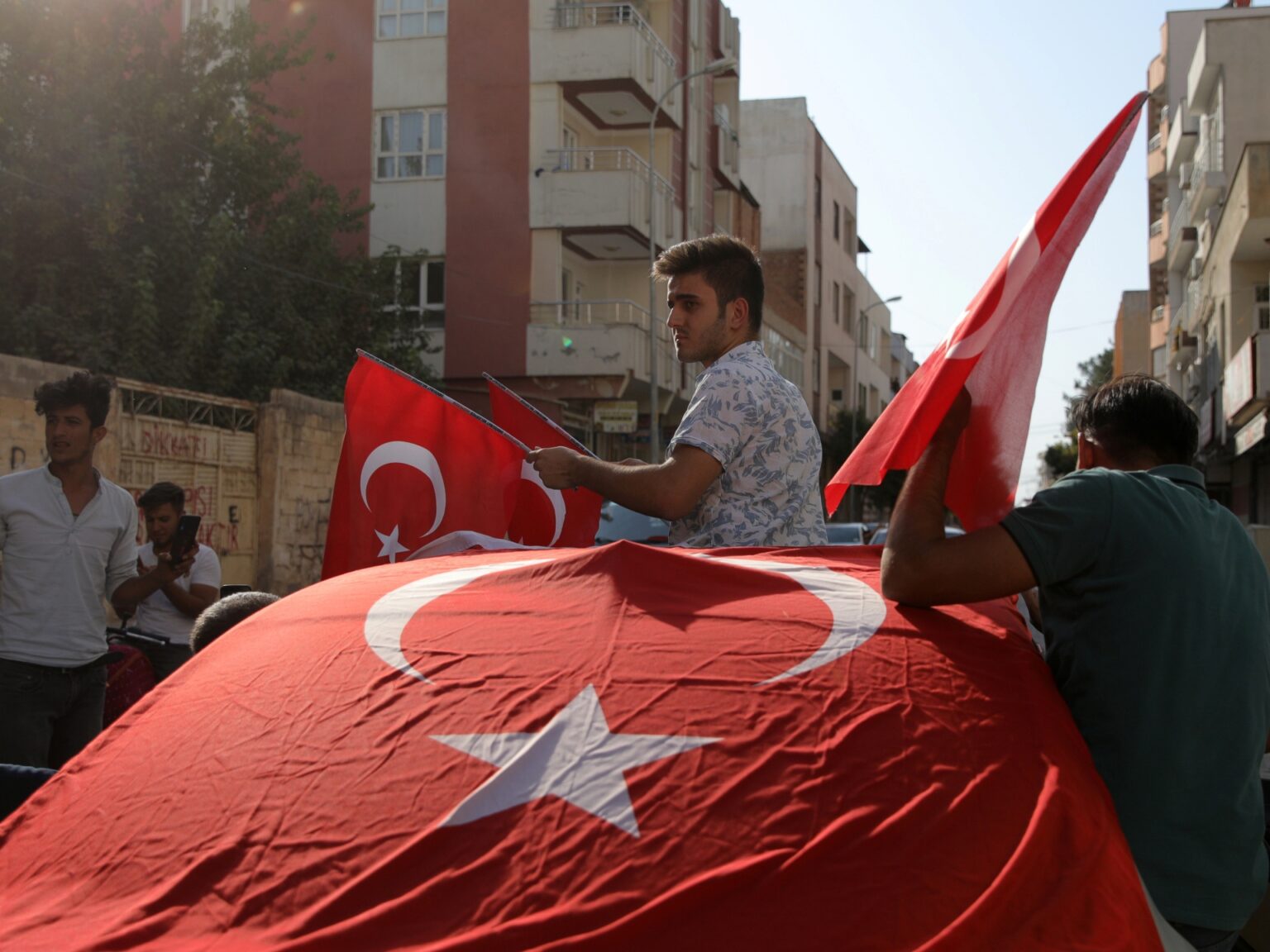Global Courant 2023-05-16 16:22:31
External analysis of Turkish politics often focuses on the divide between political Islamism and secularism, between liberals and conservatives.
But when we look at Turkish politics today, there is one ideology that is represented across the board: nationalism.
Nationalists, in the form of the Nationalist Movement Party (MHP) and its leader Devlet Bahceli, are the main allies of Turkish President Recep Tayyip Erdogan.
Former MHP members who split over support for Erdogan founded the Iyi Party in 2017, now a key part of the opposition alliance.
Another ex-MHP member, Sinan Ogan, has been labeled the “kingmaker” ahead of the presidential runoff scheduled for May 28, after surprisingly winning more than 5 percent in the first round of the presidential election on Sunday.
And then there are nationalists of a different flavor – left-wing Kurdish nationalists from the People’s Democratic Party (HDP), who fought the election under the banner of the Yesil Sol Party.
Even before Ogan’s rise to power, the presence of Turkish nationalists at the center of the two main alliances fighting the election allowed the ideology to have a greater effect on both sides of the debate.
It has led to a tougher push from both sides to resolve the issue of some 3.7 million Syrian refugees living in Turkey – with both Erdogan and his presidential runoff opponent Kemal Kilicdaroglu moving to the right in the past in the year issue.
A combination of anti-refugee sentiment and economic hardship has even led to pressure on politicians to return Syrians to their homelands, despite President Bashar al-Assad’s continued rule, and even a spike in violence against people perceived as Syrian .
Turkish nationalists have also been able to use those same economic problems to fuel xenophobic attitudes towards other refugee and migrant populations, and anti-Arab attitudes are also on the rise on both the left and the right.
Ogan himself has already referred to “terrorism” as a red line for his support in the second round – a clear reference to Kurdish groups. While Erdogan’s AK party included politicians from the predominantly Kurdish Huda-Par Islamist party on its parliamentary candidate lists, this will be more of a problem for Kilicdaroglu, who received huge support from HDP voters and will struggle to win over Ogan voters. win without losing Kurdish support.
Replacing Islamic movement with nationalism?
Turkish nationalism has always been present in the post-Ottoman Republic of Turkey, but has really found its own way after the rise of former army colonel Alparslan Turkes in the 1960s.
Turkes founded the MHP, which along with its paramilitary organization, the Gray Wolves, fought left-wing groups in the 1970s. The Gray Wolves have subsequently been labeled a “terrorist” group in Kazakhstan and banned in France, with calls for a “terrorist” designation to also be applied in the wider European Union and the United States. The Turkish government has denied the existence of the group.
Although the MHP has moderated under Bahceli, it is still regarded as a hardline nationalist movement, whose presence has pushed the Turkish government further to the right.
This was not always the case – the MHP opposed Erdogan’s peace process with the Kurdistan Workers’ Party (PKK) in early 2010.
But from 2015, when the peace process failed, and especially after the failed coup against Erdogan in 2016, the MHP became a strong ally.
In this sense, the MHP replaced the group largely responsible for the coup, the Gülenists – who were once Erdogan’s close partners.
Bahceli has replaced figures such as former President Abdullah Gul and former Prime Minister Ahmet Davutoglu, men who were pivotal in Erdogan’s rise to power but who eventually parted ways with him.
Davutoglu himself was known for his “zero problems with neighbors” foreign policy. The Arab Spring and the desire to support groups with a background in political Islam, such as Ennahdha in Tunisia and the Muslim Brotherhood in Egypt, put an end to that.
But the rise to power of the nationalist narrative has also helped Turkey entrench itself militarily in the fight against the PKK and its affiliates in Syria and Iraq, while the desire to project Turkish power has also sparked disputes beyond the Middle East. East, especially in the East. Mediterranean.
It all means that while Erdogan’s roots in political Islam can never be discounted and remain attractive to domestic conservatives, Turkish nationalism is arguably the stronger ideology within the Turkish government and will continue to do so.
What comes next?
Erdogan is now expected to win the second round against Kilicdaroglu on May 28, after defying pollsters’ expectations to win within one percentage point of the presidential election in the first round.
But the Turkish leader, who has led the country for 20 years, will turn 70 next year and will be 74 in the next presidential election in 2028. Consideration will certainly be given to who will be his successor.
It is a big problem for the AK Party, which seems rudderless without Erdogan. While its popularity has remained stable overall, the party’s has fallen, drifting voters towards nationalist parties.
No one within the party has the seriousness or popularity of Erdogan.
Some analysts predict that this will pave the way for a member of the Republican People’s Party (CHP), perhaps someone like Istanbul mayor Ekrem Imamoglu, and that Erdogan’s successor will come from the left.
But it is Turkish nationalism that predominates, both in the government and in the opposition, making it more likely that a successor from the right will emerge.
(TagsToTranslate)News








